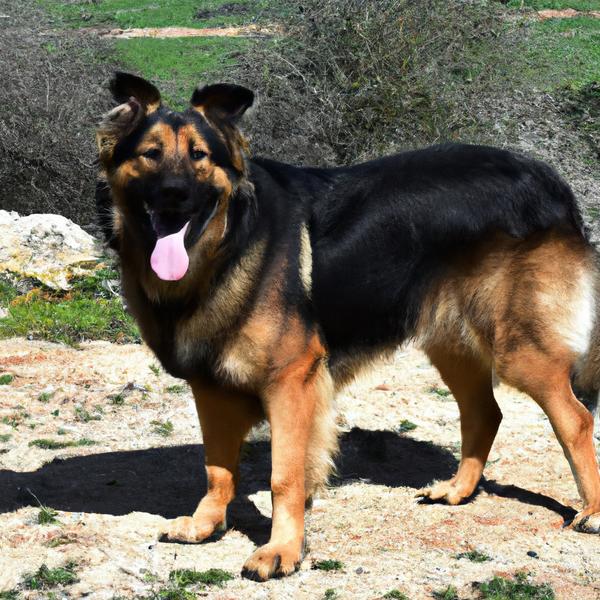Saint Shepherd vs. Schnocker: Breed Differences and Similarities
Hypoallergenic
Are Saint Shepherds or Schnockers hypoallergenic, or neither?
Unfortunately, neither Saint Shepherd nor Schnocker are hypoallergenic, which may not make them the best choice for dog lovers who suffer from pet allergies.
Temperament
What are the personalities of Saint Shepherd and Schnocker dogs?
Curious
Independent
Happy
Alert
Courageous
Intelligent
Confident
Friendly
Obedient
Loyal
Gentle
Going
Social
Watchful
Quiet
Playful
Alert
Intelligent
Friendly
Affectionate
Obedient
Trainable
Fearless
Spirited
Quiet
Faithful
Shedding Level
Do Saint Shepherds shed more than Schnockers, or which breed sheds more, Saint Shepherds or Schnockers?
Saint Shepherds shed a lot of hair each year, so frequent brushing is essential for reducing shedding and maintaining coat health.
Schnockers are low shedding dogs, requiring minimal coat care.
Origin
What is the origin of Saint Shepherd and Schnocker dog breeds?
United States
United States
Ancestry
What are the origins of Saint Shepherd and Schnocker breeds?
German Shepherd, Saint Bernard
Cocker Spaniel, Miniature Schnauzer
Breed recognition
Which kennel clubs recognize/register Saint Shepherd and Schnocker?
DRA = Dog Registry of America, Inc.
ACHC = American Canine Hybrid Club
DRA = Dog Registry of America, Inc.
IDCR = International Designer Canine Registry®
Date of Birth
When were Saint Shepherd and Schnocker breeds first developed?
2000s
2000's
Eye Color Possibilites
What are the eye colors of Saint Shepherd and Schnocker dogs?
Brown
Brown
Nose Color Possibilites
What are the natural nose colors of Saint Shepherd and Schnocker?
Black
Black
Coat Color Possibilites
What are the natural colors of the coat for Saint Shepherd and Schnocker breeds?
Black
Brown
Pied
Sable
Black
Brown
Gray
White
Cream
Coat Length
What is the typical coat length for Saint Shepherd and Schnocker breeds?
Saint Shepherds have longer coats compared to most dogs.
Schnockers have medium-length coats.
Coat Density
What is the density of the coat of Saint Shepherd and Schnocker?
Coat Texture
What is the hair texture of Saint Shepherd and Schnocker?
Straight
Wavy
Litter Size
What is the usual litter size for Saint Shepherd and Schnocker?
A Saint Shepherd can have a litter of 6-10 puppies on average. However, it's worth noting that the size of the litters can vary greatly. Factors that can influence litter size include the health of the mother, breeding history, and genetics.
A Schnocker can have a litter of 6-8 puppies on average. However, it's worth noting that the size of the litters can vary greatly. Factors that can influence litter size include the health of the mother, breeding history, and genetics.
Adaptability
Saint Shepherd and Schnockers are known for their adaptability and versatility. They are capable of adapting well to a wide range of lifestyle changes and living environments, making them great companions for families and individuals of all lifestyles.
Health Issues
Between Saint Shepherd and Schnocker, which breed is more prone to health problems?
The Saint Shepherd breed is generally very healthy, requiring minimal vet visits. Still, it's important to keep an eye on their health and seek veterinary care when needed.
While the Schnocker breed is generally healthy, occasional vet check-ups are still necessary to address any health concerns.
Major Concerns
What are the major health concerns for Saint Shepherd and Schnocker breeds?
Hip And Elbow Dysplasia
Renal Cystadenocarcinoma and Nodular Dermatofibrosis
Dilated Cardiomyopathy (DCM)
Gastric Dilation Volvulus (GDV) or Bloat
Retinal Dysplasia
Seborrhea
Portosystemic Shunt
Sick Sinus Syndrome
Minor Concerns
What minor health issues should be kept in mind when owning Saint Shepherd and Schnocker?
Entropion
Ectropion
Pannus
Keratoconjunctivitis Sicca (Dry Eye)
Cataracts
Mono/Bilateral Cryptorchidism
Megaesophagus
Hypothyroidism
Progressive Retinal Atrophy (PRA)
Idiopathic Epilepsy
Patent Ductus Arteriosus (PDA)
Keratoconjunctivitis Sicca (Dry Eye)
Cleft Lift or Palate
Occasional Tests
What occasional tests are recommended for Saint Shepherd and Schnocker breeds?
Eye Examination
Skin Evaluation
Blood And Urine Analysis
Diagnostic Imaging
Cardiac Test
Complete Blood Count
Internal Imaging (x-ray, CT scan, MRI, etc.)
Blood And Urine Analysis
Ear Tests and Myringotomy Tests
Blood Sugar and Thyroid Tests
Yearly Physical Examination
Eye Examinations (both internal as well as external)
X-rays of various parts of the skeletal system
Dental and Oral Examinations
Echocardiography (ultrasound)
Social Needs
Saint Shepherd vs Schnocker social needs comparison
Saint Shepherd and Schnocker have above average social needs compared to other breeds. They thrive in environments where they have a lot of interaction with humans and other dogs.
Sleeping Need
Which of the two sleeps the most/least: Saint Shepherd or Schnocker?
Saint Shepherds have moderate energy levels and typical sleep patterns of 12-14 hours per day.
Schnockers are active and require sufficient sleep to stay healthy.
Mouthiness
Mouthiness Comparison: Saint Shepherd vs Schnocker?
Roaming urge
Saint Shepherd vs Labrador: Running away tendency?
Prey Drive
Saint Shepherd or Schnocker - which breed has a higher level of prey drive?
Past times
What are some enjoyable activities and ways to keep Saint Shepherd and Schnocker entertained?
Fetch, Napping, Running, Walking, Tug-of-war, Hiking, Movie marathons, Frisbee, Walks, Hunting, Swimming, Traveling, Run, Tricks, Chase, Walk, Play keep away, Play, Playdate, Water play, Hide & Seek, Playing fetch, Hike, Tag, Walkin, Play time, Training, Sleeping, Swim, Brushing
Walks, Cuddling, Toys, Trainin, Sleeping
Activity Level
Which breed has higher energy, Saint Shepherds or Schnockers?
Saint Shepherds are high-energy dogs. They need mental as well as physical exercise. These dogs require a lot of your involvement and without it they can, and will, become problematic dogs.
Schnockers are medium-energy dogs and typically enjoy socializing and playing casual or even sustained games of chase with other dogs. They may also have occasional periods of barking or racing around the house.
Tolerance of being left alone
Walks per Week
How many miles should Saint Shepherd or Schnocker walk each week?
There's really no limit to how far you walk your dog as long as they're comfortable. For Saint Shepherd, it's at least 18 miles / week. Just remember to build distance and stamina gradually over time.
There's really no limit to how far you walk your dog as long as they're comfortable. For Schnocker, it's at least 5 miles / week. Just remember to build distance and stamina gradually over time.
Activity per Day
Do Saint Shepherds or Schnockers require more exercise?
In general most Saint Shepherds usually need at least 90 minutes of exercise daily. This can be spread across the day and include all sorts of high-energy activities, like walking, running and playing.
In general most Schnockers usually need at least 60 minutes of exercise daily. This can be spread across the day and include all sorts of high-energy activities, like walking, running and playing.
Grooming
Which breed is easier to maintain in terms of grooming, Saint Shepherds or Schnockers?
The Saint Shepherd requires an average amount of grooming compared to other breeds.
Schnockers require significant grooming, including regular trims and professional grooming assistance to maintain their coat. They may also require frequent bathing to keep their coat and skin healthy.
Brushing Frequency
What is the recommended brushing frequency for Saint Shepherd and Schnocker dogs?
Ideally, Saint Shepherd should be brushed at least 2 or 3 times a week (preferably daily) improve shedding.
Schnocker should be brushed at least once a week. Of course you can give them more frequent brushes if you find that they are still shedding a lot
Brushing Tools
What brushing tools are used for Saint Shepherds and Schnockers?
Pin Brush
Comb
Deshedder
Nail Clipper
Pin Brush
Dematter
Deshedder
Nail Clipper
Cups
How much food should be given to Saint Shepherd or Schnocker in cups?
For an average 95-150 pound (43 - 68 kg) Saint Shepherd feed 4.5 cups daily. But, keep in mind, the amount you feed is going to be dependent on the quality of the food you are feeding.
For an average 13-27 pound (6 - 12 kg) Schnocker feed 2 cups daily. But, keep in mind, the amount you feed is going to be dependent on the quality of the food you are feeding.
Daily Cost
Which breed has a higher daily cost, Saint Shepherd or Schnocker?
The average cost of a Saint Shepherd is somewhere $4.50 - $5.60 per day.
The average cost of a Schnocker is somewhere $1.70 - $2.00 per day.
Monthly Cost
Which breed has a higher monthly cost, Saint Shepherd or Schnocker?
The average per month expenses of a Saint Shepherd is between $134 - $168. This makes an average of $1608 - $2016 per year. It will be on the higher side when the dog is still small because it will need more frequent visits to the vet, shots.
The average per month expenses of a Schnocker is between $48 - $63. This makes an average of $576 - $756 per year. It will be on the higher side when the dog is still small because it will need more frequent visits to the vet, shots.
Sensitivity Level
How do Saint Shepherd and Schnocker compare in sensitivity?
These dog breeds are particularly attuned to its environment and the emotions of those around it. Saint Shepherd and Schnocker can be easily overwhelmed by loud noises, new environments, unfamiliar people, or animals. This dog breed is best suited for individuals or families who are patient, gentle, and understanding of its sensitive nature. It may also benefit from a calm and stable home environment, with a consistent routine and plenty of positive reinforcement training.
Apartment Friendly
Which breed is more apartment-friendly: Saint Shepherd or Schnocker?
Saint Shepherds are good apartment dogs as long as they get enough exercise and stimulation outside of the apartment.
The Schnocker is a great apartment dog, thriving with sufficient exercise and time outside as part of their daily routine.
Child Friendly
Do Saint Shepherds or Schnockers have a friendlier temperament towards children?
The typical characteristics of Saint Shepherd and Schnocker indicate that this breed of dog is an ideal companion for kids and makes them family pets. Their gentle and protective nature and calm mentality make them gel along quickly with the younger humans.
Senior-friendly
Which dog is more suitable as a pet for the elderly - Saint Shepherd or Schnocker?
Cat Friendly
Do Saint Shepherd or Schnocker breeds have a better compatibility with cats?
Saint Shepherds and Schnockers are one of the best dogs for cats. They accept cats readily as part of the family. However, this dog breed should be trained to not chase after the kitty early on
Dog Friendly
Which breed is more sociable with other dogs: Saint Shepherd or Schnocker?
Saint Shepherds and Schnockers are friendly, active and loyal companions. They generally love to be around other dogs, making them a good family pet for some.
Pet friendly
How do Saint Shepherd or Schnocker dogs interact with other pets?
Stranger Friendly
Which breed is more friendly with strangers: Saint Shepherd or Schnocker?
Saint Shepherds are friendly but may bark at strangers, and training is easy due to their intelligence.
Schnockers are averagely friendly around strangers but benefit from early socialisation.
Playfulness
Which breed is more playful between Saint Shepherd and Schnocker?
Saint Shepherds have an average level of playfulness, enjoying playtime like most dogs but not excessively so.
Schnockers are a playful breed that needs daily playtime to be happy.
Trainability
How do the trainability levels of Saint Shepherds and Schnockers compare?
Saint Shepherds are usually easy to train but require consistency to fully obey commands.
Schnockers are popular for their ease of training and quick learning ability.
Compare Saint Shepherd with other breeds
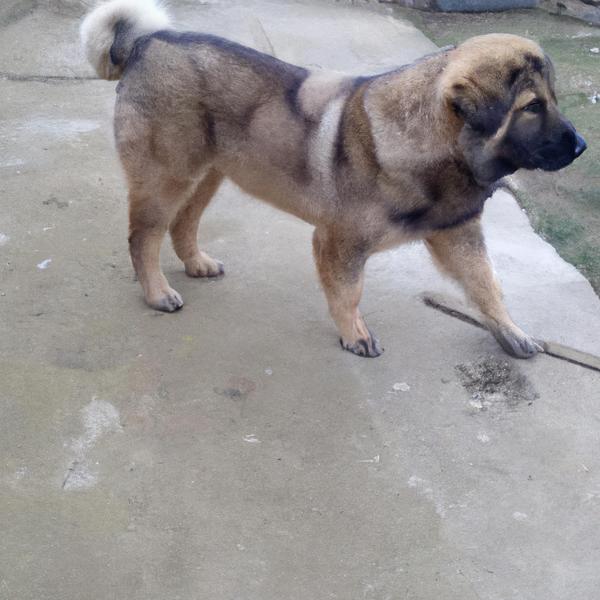
Pughasa
Saint Shepherd vs Pughasa
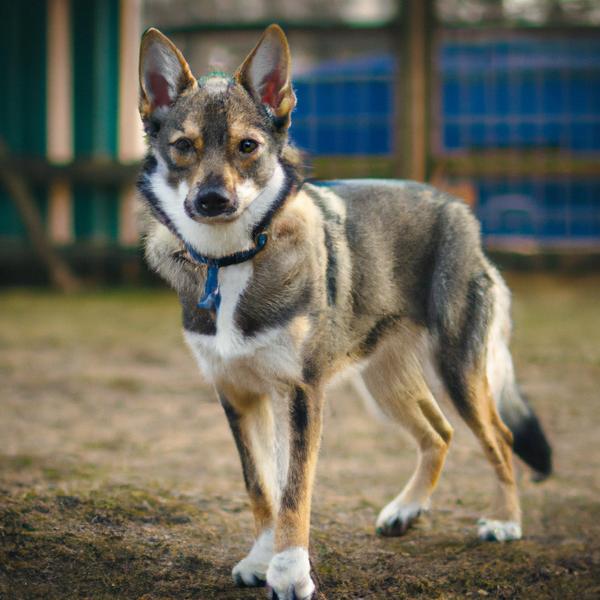
Swedish Vallhund
Saint Shepherd vs Swedish Vallhund
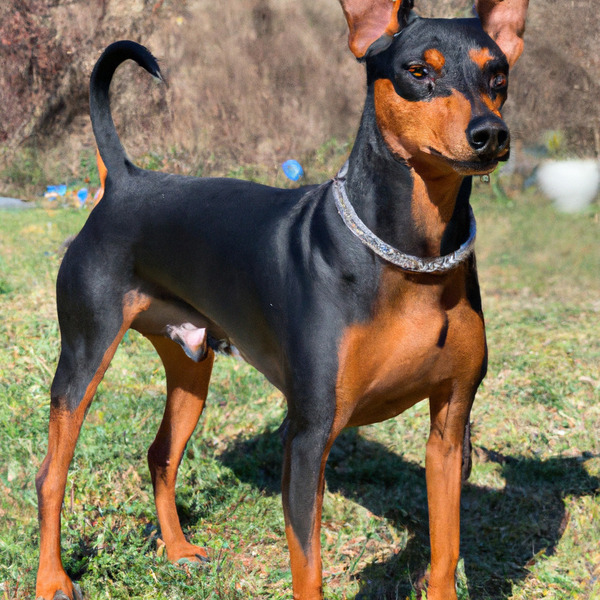
Austrian Pinscher
Saint Shepherd vs Austrian Pinscher
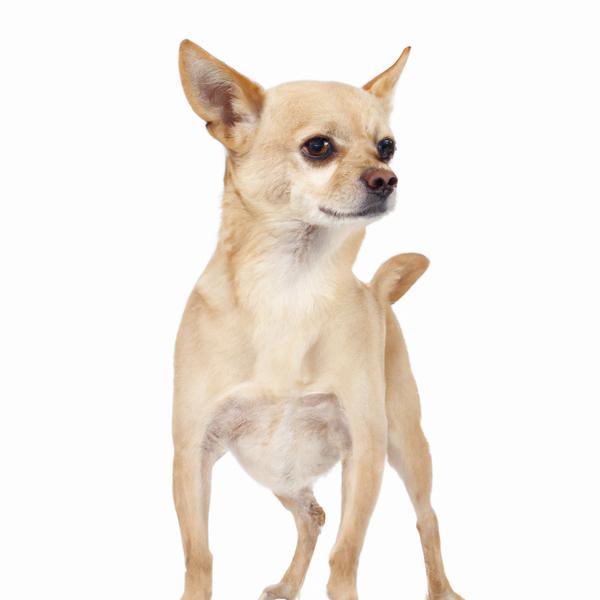
Bolo-Chi
Saint Shepherd vs Bolo-Chi
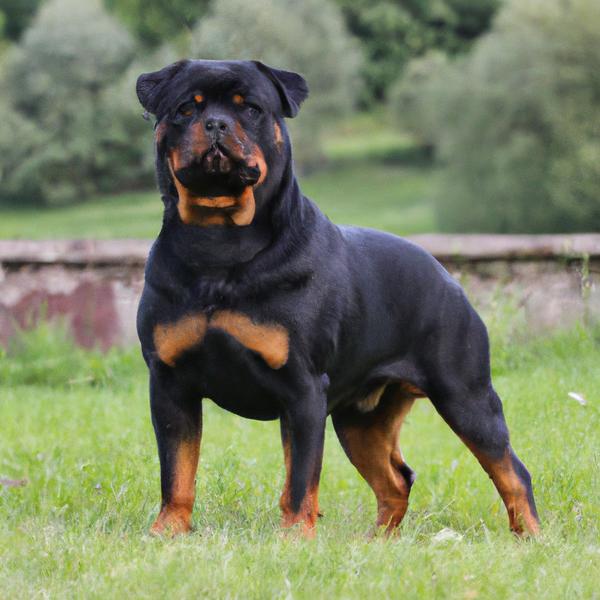
Rott Pei
Saint Shepherd vs Rott Pei
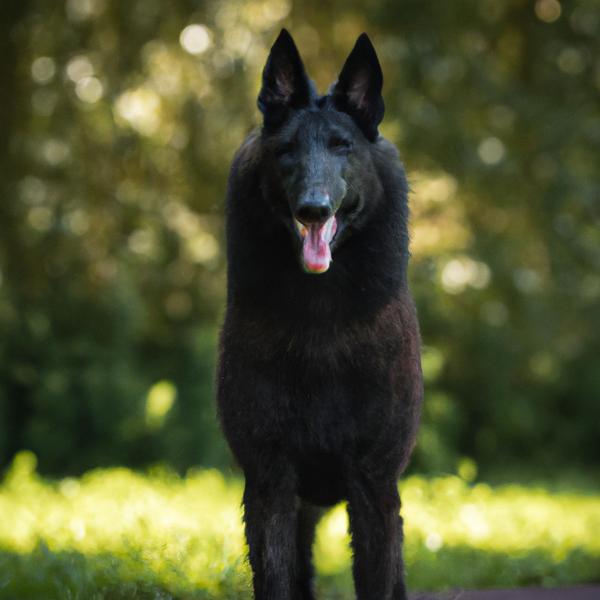
Belgian Sheepdog
Saint Shepherd vs Belgian Sheepdog
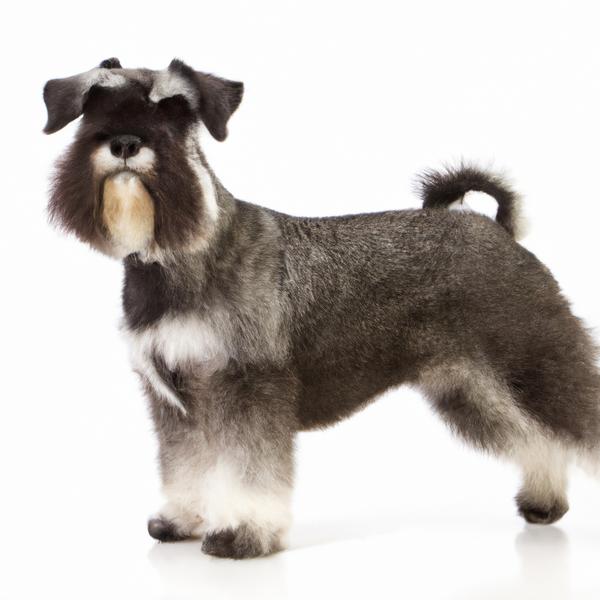
Schnau-Tzu
Saint Shepherd vs Schnau-Tzu
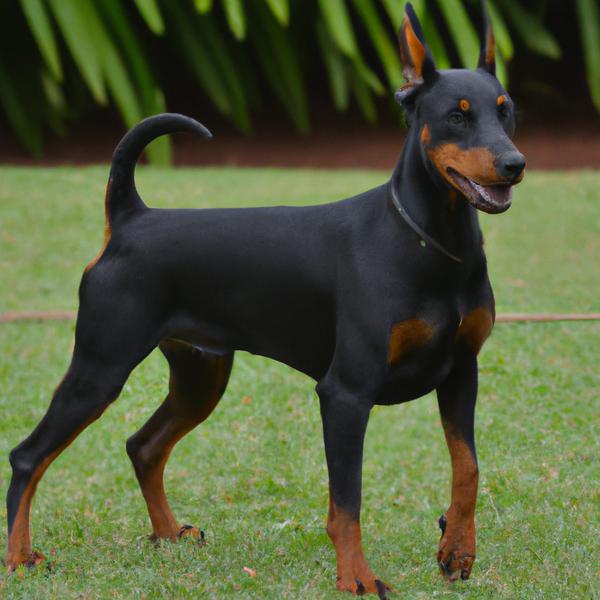
German Pinscher
Saint Shepherd vs German Pinscher
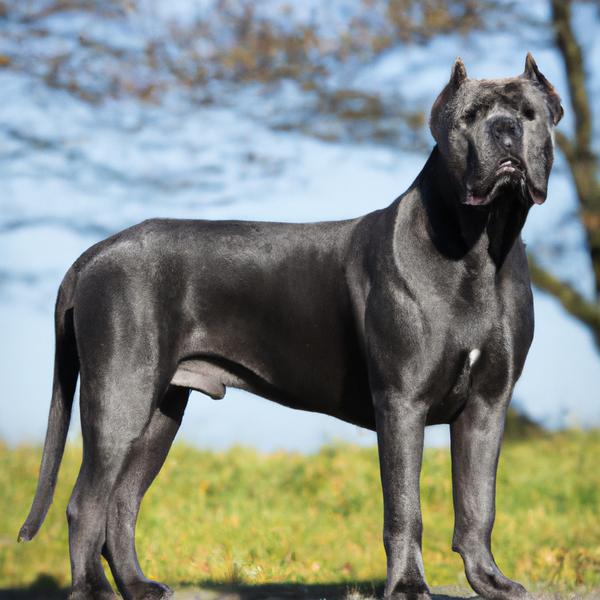
Blue Blood Cane Corso
Saint Shepherd vs Blue Blood Cane Corso
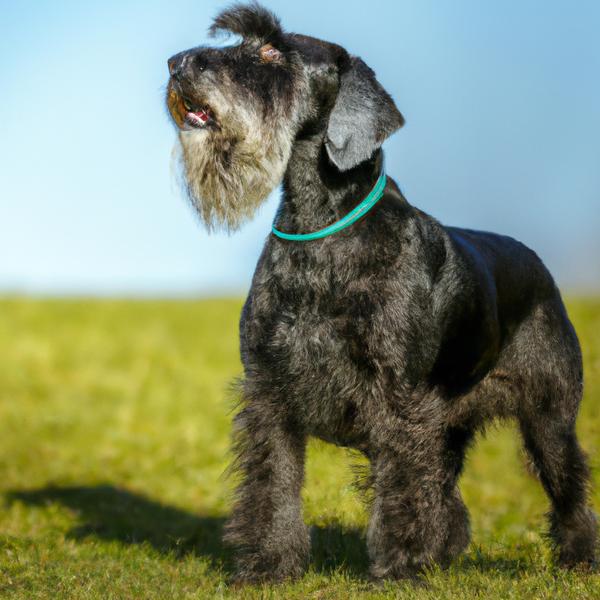
Schnocker
Saint Shepherd vs Schnocker
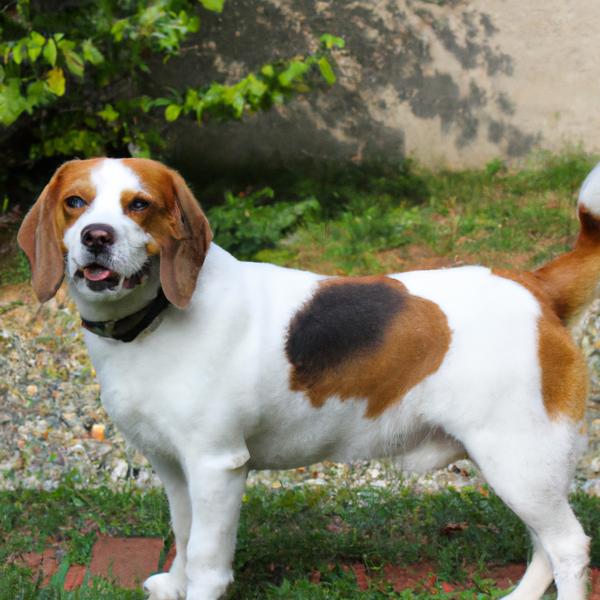
Coton-Beagle
Saint Shepherd vs Coton-Beagle
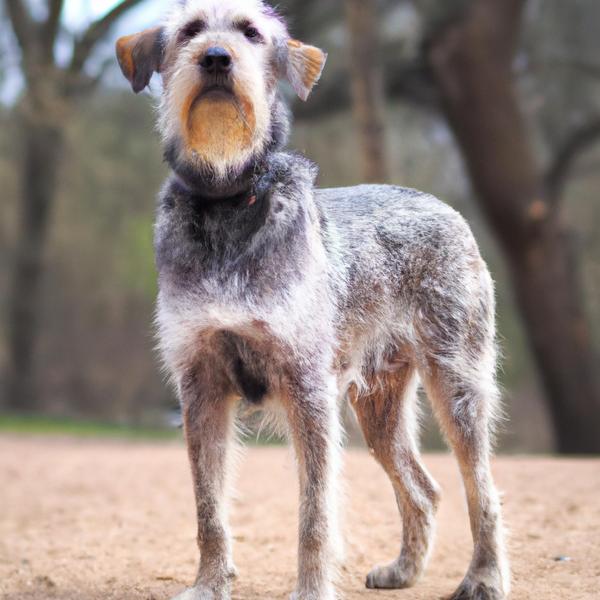
Wowauzer
Saint Shepherd vs Wowauzer
